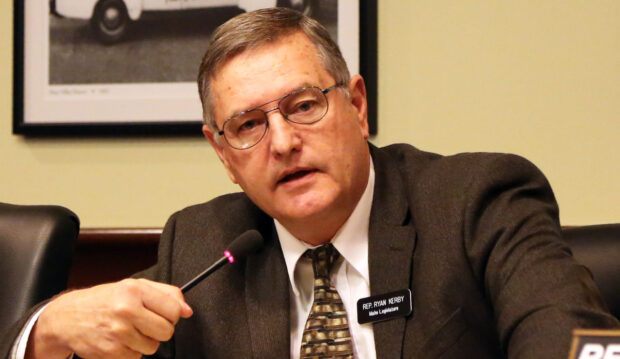The Idaho’s Parent Teacher Association is concerned about the effects of a court ruling that declared academic and student fees unconstitutional.
“It sounds great on paper, but in reality, it has been disastrous,” Maria Lorcher, the PTA’s vice president of advocacy, told the House Education Committee Wednesday. “With the elimination of fees, districts are experiencing a significant financial shortfall in both curricular and co-curricular activities.”
In November 2015, District Judge Richard Greenwood sided with former West Ada School District trustee Russell Joki, who filed a lawsuit in 2012 challenging fees he paid before his election. Greenwood ruled the fees violate the Idaho Constitution’s requirement to maintain “a general, uniform and thorough system of public, free common schools.”
The ruling has had a far-reaching impact on schools, Lorcher said. It affects a kindergarten teacher’s ability to furnish her classroom with Kleenex and basic supplies, equipment purchases for science labs and a marching band’s ability to afford uniforms and travel to performances.
“In middle school and high school, they are eliminating labs for these students and districts are not prepared to support the financing to go along with these classes,” Lorcher said.

“It will kill these programs, because they will become voluntary.”
Rep. John McCrostie, a public school music teacher, said he is concerned about the fallout as well. In the past, McCrostie said band students or their parents used to pay for music method books. Now, that burden falls on districts.
“At $7 a pop, it doesn’t seem to be that much until it’s added up over 34 elementary schools in the Boise School District,” McCrostie said.
Rep. Ryan Kerby, a retired school superintendent, also noticed the fallout.
“We kind of figured something like this (would happen), but we didn’t know it would be on this magnitude,” Kerby said.
The PTA helps where it can, but the organization’s comparatively modest fundraising abilities cannot offset the lost fees.

“We keep tapping into the same group of parents,” Lorcher said. “We’re volunteers, we don’t have adequate skills to go after big sponsorships or big corporations to be able to fund this.”
The Idaho PTA doesn’t have any legislation in the works to directly address the situation, but Lorcher urged lawmakers to provide districts with as much flexibility as possible.
“If Legislature can free up discretionary money to become more flexible, curricular and co-curricular classes can still be a part of education,” Lorcher said.
Lorcher made similar remarks to the Senate Education Committee Wednesday afternoon.
Technology bill short-circuited
Senate Education had cold feet about a bill requiring school districts and charter schools to file technology reports with the state.
Senate Bill 1014 would require schools to spell out a four-year technology plan. The document would cover classroom goals and a timeframe to replace and upgrade equipment.
The reports would mirror documents schools already have to submit to collect “e-Rate” dollars — federally administered funds used for technology purchases.
Senators weren’t sold, and were uneasy about adding to schools’ reporting requirements.
Under prodding from the committee, Rob Winslow of the Idaho Association of School Administrators gave SB 1014 a lukewarm review. Administrators probably wouldn’t relish a new reporting requirement, he said, “but we certainly understand the responsibility.”
Essentially, the committee took no action on the bill Wednesday afternoon. Senators didn’t approve the bill or kill it; instead, they voted unanimously to hold it. That means the bill could still come up later in the session.
The proposed reporting requirements come as legislators will consider a significant boost in classroom technology budgets. Gov. Butch Otter has proposed $28 million for classroom technology, up from $18 million in 2016-17.
Idaho Education News reporter Kevin Richert contributed to this report.
